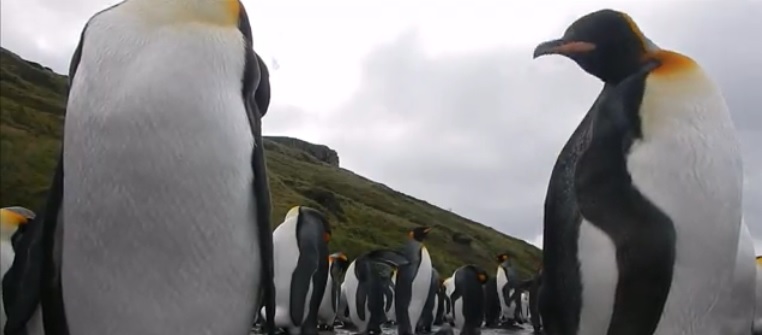Podcast: Play in new window

BOB HIRSHON (host):
Restless penguins. I’m Bob Hirshon and this is Science Update.
Life is exhausting for king penguins, which split their time between hunting at sea and resting in crowded and noisy island colonies.
TESSA VAN WALSUM (University of Roehampton, UK):
They sleep for short amounts of time, presumably with one side of the brain, and every now and then they will scan the environment a little bit, semi alert, looking around for potential threats.
HIRSHON:
That’s University of Roehampton marine biologist Tessa Van Walsum. At the 2016 meeting of the Society For Experimental Biology, she reported that the birds react much more strongly to audio recordings of predators and other threats when they’re asleep than awake.
VAN WALSUM:
It might be because the sleeping penguins are more vulnerable, in a state of “run, then look”, whereas the wakeful penguins might choose the option of simply looking around because nothing is happening.
HIRSHON:
I’m Bob Hirshon, for AAAS, the science society.
Story by Susanne Bard

 Metal in Microwaves
Metal in Microwaves